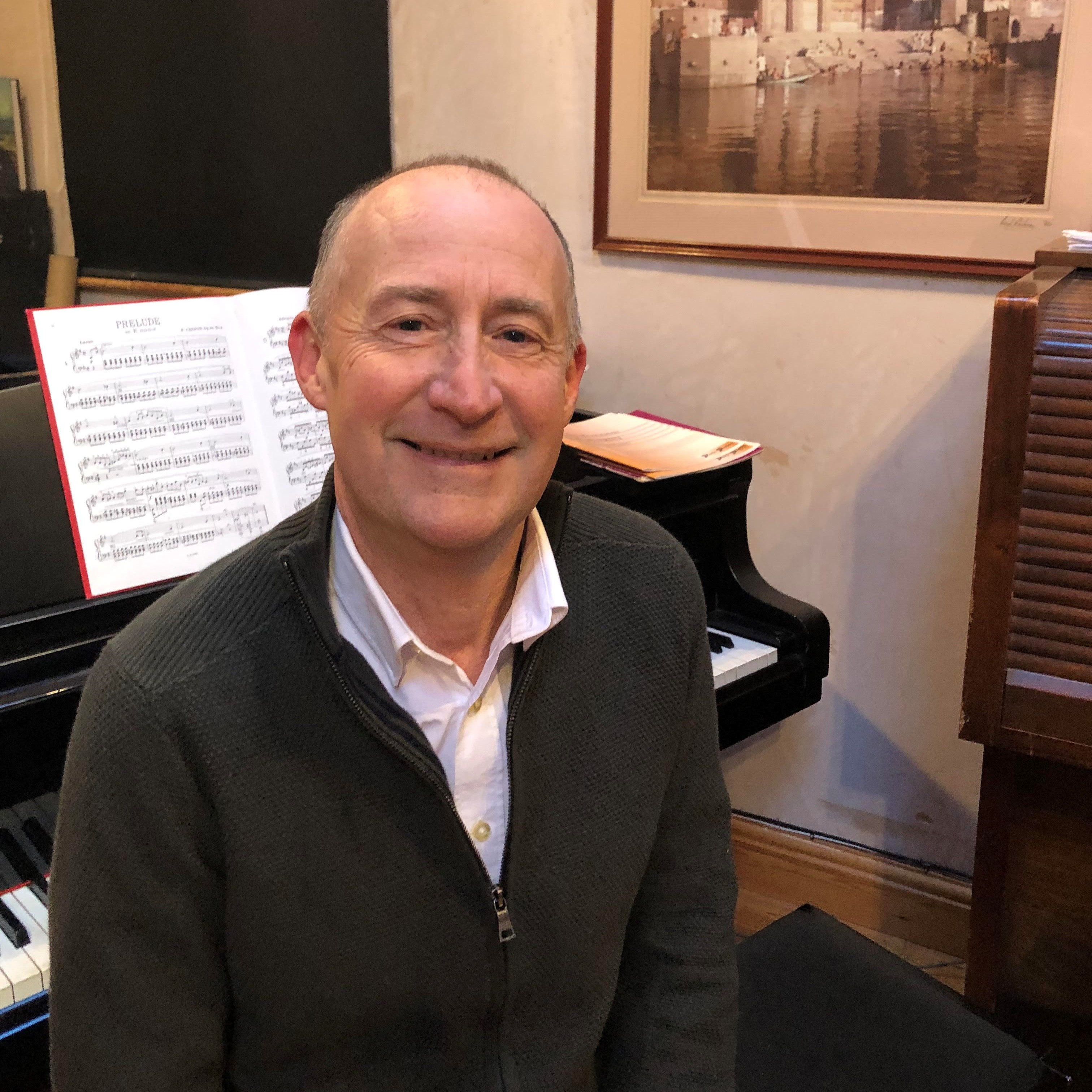Meet Lionel
Meet Epsom solicitor Lionel Blackman, who is helping to sponsor the role of Professor of Piano.

What part has music played in your life?
I started piano at the age of 10, which is quite late – my eldest brother was having lessons and my parents’ logic seemed to be that he needed to finish them before I could start. I worked through the grades up to Grade 8, and I played the violin for a while and sang in the church choir. Although I have a good sense of rhythm, I’m not good at counting and I don’t have an ear for pitch, so I never had the potential of a career. I became interested in the law and that took over. However, I still play the piano every day, just for myself, and enjoy creating amateurish compositions. Some people go angling and sit beside a lake for hours to relax; my switch-off is to go to the music room and play.
How did you become involved with the Menuhin School?
I’ve been a member of the audience at The Menuhin Hall for several years because it is just down the road. The concerts are excellent value, and the students are so inspiring. You can’t help but have your heart warmed, watching these talented young people perform. It’s magical. Knowing how difficult it is to play an instrument helps me appreciate just how gifted and hard-working they are.
What made you decide to donate to the School?
I’m 61 and having devoted more than 30 years to my legal career I’ve been steadily reducing my caseload as a lawyer. The childhood experience of learning music reminds me that there’s a dimension to life beyond law that needs to be renewed and refreshed.
Supporting a new generation of professional musicians is extremely rewarding. Life has been good to me in terms of being rewarded in my career, and it feels good to put something back. There are many charitable causes around the world, and I don’t neglect them, but for me, there’s something special about investing in people. The Menuhin School’s mission is to attract the best talents from all backgrounds and races around the world, offering them encouragement and an environment to become professional, and it’s a privilege to be part of that in my small way. Also, COVID has been an extraordinary challenge for them over the last year, so I think they particularly appreciate the support they’re receiving at the moment.
Why did you decide to help to sponsor a professor rather than just making a donation?
It was suggested that it would be helpful to make a contribution towards the post of a piano professor and I immediately saw the merit of this for all of us. If any of his pupils become famous one day, it might be a bit cheeky, but I will be able to feel proud, rather than putting all my eggs in one basket by sponsoring only one student!
What makes the Menuhin School special for you?
Going to concerts and seeing the young musicians play, I’ve witnessed how the School instils great confidence in its students. In June, I helped sponsor a concert of young players at a local theatre in Epsom – occasionally we reach out so that people in the area get to know about the School. It was the first live concert in Epsom since COVID and it was remarkable how two young violinists, aged around eleven, just walked on stage and started to play a beautiful duet together. They took a bow at the end and the next players came on, and the concert went on like that. It was all about the music and giving it to an audience that was very appreciative – it was the first time many of them had been out at all, let alone to a live music concert, for over a year. It felt very special, and that is the product of the ethos that is engendered, and of the work of the staff, who remain inspired by the founding father himself, Yehudi Menuhin.
Did you ever meet Yehudi Menuhin?
In 1971 my godfather took me to the Royal Festival Hall to see him conducting Beethoven’s ‘Eroica’ Symphony. We had seats in the choir stalls, so I’ve been within 50 yards of him.
How important is music education?
In recent years music education in British schools has not been a priority even though the intelligence suggests that music develops enhances general aptitudes and the happiness of the student. There is often an attitude of ‘You’re not going to get a job out of music so you’d better do chemistry,’ but music should be regarded as at least equal to every other discipline, held in high regard and encouraged. YMS students can inspire the promotion of music education in all schools.
What role does the School have to play in music education across the country?
I hope that the Menuhin School’s example can continue to inspire schools, in both the state and private sectors, to continue to expand (or to recover, depending on their position) their music departments, the study of instruments and the promotion of all music, including classical. The School is a model example of young people playing and enjoying music and they are ambassadors for the instruments they play and the beautiful music they make. Their message can be communicated throughout the country: these young people can play music and there’s no reason why other people shouldn’t.
What would you say to someone who might be thinking of donating to the School?
Whatever amount you can donate, you will know that it is not being wasted. Every pound is an investment in the future – not just in the culture of this country, but in music around the world, internationalism and, ultimately, peace on earth. The value of what music can do globally cannot be underestimated.
On a practical level, if you are around my age, reaching the stage where life has been good to you and you have a surplus of funds that would be wasted if you took it to your grave, now is the time to give some of it away to a good cause. If you are still paying taxes, you are eligible to claim Gift Aid, so don’t leave it too late.
My Aunt Ada always said, ‘It’s better to give than to receive,’ and donating to the School certainly makes me feel happy. In the scheme of thing, I don’t give very much, and I’m not wearing sackcloth, but what I do give is rewarding, in my soul. This is a cause where you see the benefits, rather than a charity where the results are not so tangible and you might not see what’s happening, so giving to the school will give you a profound sense of satisfaction.

